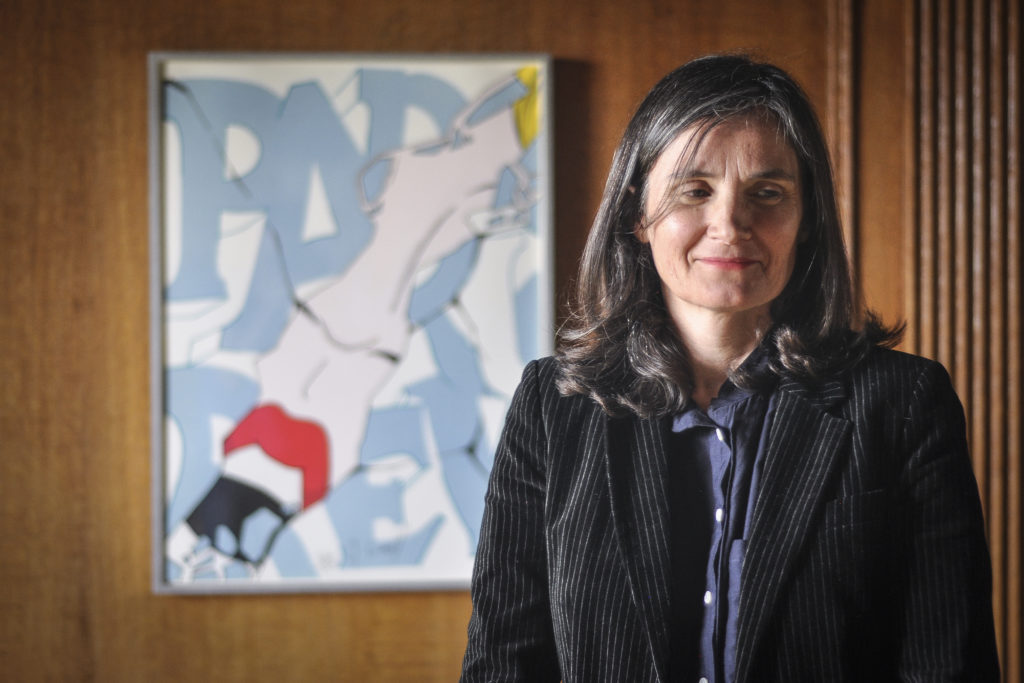The Paris Review is mourning the loss of our publisher Susannah Hunnewell, who died this past weekend at her home in New York at the age of fifty-two. Her contributions to the magazine were immeasurable. You can read our more formal obituary here, and the Art of Fiction interviews she conducted here. In this post, we are gathering the intimate remembrances of those who knew her well. The page will be updated as more come in.
I was lucky enough to become friends with Susannah Hunnewell almost twenty years ago. She was a brilliant editor, translator, interviewer, and publisher, and yet, there was something wild about her. She knew how to let loose. Susannah was smitten with punk rock and all manners of bohemia. She danced with abandon, and I remember a hair-raising drive uptown as she accidentally ran red lights and swerved through traffic, pumping her fist to the ear-splitting sounds of the Ramones. She wasn’t what I might have expected from an Ivy League, blue-blooded mother of three. When she liked something, she really liked something.
Her conversation was peppered with salty language and a lot of table-thumping. She was extremely generous to her artist friends, initiating commissions, lending out her chic Parisian apartment, and inviting stragglers to join her table at The Paris Review’s annual Revel. She liked to mix it up. She wasn’t interested in class hierarchy. This was part of the reason that her friends were so devoted to her. She was a set of perfect contradictions. She was so much more.
Once we went to Cooper Union to attend a tribute to one of her favorite poets, Elizabeth Bishop. As we were sitting in the auditorium, waiting for the readings to begin, she began telling me about a fancy dinner party she’d attended in Washington, D.C., with her husband, Antonio. She had been seated next to Colin Powell. Though she’d initially been baffled by this unlikely seating arrangement, by the end of dinner, they were having a ball. “He couldn’t have been sweeter!” she exclaimed. Someone in the row behind us tapped me on the shoulder. It was downtown writer/actor/musician Richard Hell, who I’d known for ages. We chitchatted about Bishop, Hell introduced his wife Sheila, and I introduced Susannah. Susannah was polite but strangely stiff. I mistook her behavior for indifference, but it turned out she was starstruck. As the lights dimmed, and we turned around, Susannah leaned over to me, eyes agog, and whispered, “That was way cooler than Colin Powell!”
The other night I had a dream. It took place by the shore of Cream Hill Lake, where I often bumped into her in the summertime. Beautiful Susannah approached, looking young and healthy, not at all in the compromised condition I had last seen her. I complimented her on her fresh haircut, chopped to the shoulders. She smiled with her shiny brown eyes, filled with their usual mischief. It was all very peaceful. The next day, I learned that she had gone. Was my dream a last visit? Had her spirit been going around saying farewell to her friends in their sleep? Perhaps it was a coincidence. Perhaps it wasn’t. She was a powerful presence. We all loved her.
—Duncan Hannah is a painter whose works are held in the collections of the Art Institute of Chicago, the Metropolitan Museum of Art in New York, and the Minneapolis Institute of Fine Art, among others. He is the author of 20th Century Boy: Notebooks of the Seventies.
from The Paris Review http://bit.ly/2KmfQVn

Comments
Post a Comment